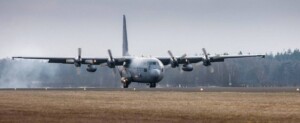Sudan prosecution indicted Ali Kushayb last year
The Sudanese Public Prosecution claimed in a press statement yesterday that it indicted Ali Kushayb for murder, theft, rape and violence against women at the end of 2019. An arrest warrant against him was issued.
 A map of confirmed damaged and destroyed villages in Darfur, dating from August 2004 (US Department of State)
A map of confirmed damaged and destroyed villages in Darfur, dating from August 2004 (US Department of State)
The Sudanese Public Prosecution claimed in a press statement yesterday that it indicted Ali Kushayb for murder, theft, rape and violence against women at the end of 2019. An arrest warrant against him was issued.
The Ministry of Interior has been instructed to enforce or assist Kushayb’s arrest.
The prosecution claimed that Ali Abdelrahman (known as Ali Kushayb) fled to the Central African Republic with his armed group when he felt cornered by Sudanese law enforcing agencies.
According to the prosecution ‘several communications’ had taken place in this regard. “When Kushayb sensed that an escape scenario would not help him, he turned himself in at the office of the Attorney General of the Central African Republic. As there was an arrest warrant issued against him by the International Criminal Court (ICC), he was subsequently handed over to the United Nations forces in the Central African Republic and then transferred to The Hague.”
The Public Prosecution announced that five persons have been arrested for crimes allegedly committed in Darfur between 2003 and 2010. Others have been indicted, but remain at large so far.
The investigations on crimes committed in Darfur are carried out by a committee set up by the Attorney General, the Public Prosecution stated. It includes three experienced chief prosecutors. In the past investigations and interrogations were limited due to the interference of the authorities at that time.
The Darfur Bar Association (DBA) said that it is in the interest of Omar Al Bashir, Abdelrahim Hussein, and Ahmed Haroun, to surrender themselves voluntarily to the International Criminal Court. All three are in custody in Sudan.
In a statement, the DBA called on the Sudanese government to cooperate with the ICC and hand over all Sudanese indicted of crimes against humanity immediately.
DBA lawyers will closely follow all cases against alleged perpetrators of human rights violations in Darfur. It will also contact the ICC about this.
Popular Congress Party
The Popular Congress Party welcomed Ali Kushayb’s transfer to the ICC. In a statement it described it as “a positive step to achieve justice for the people of Darfur with regard to the crimes committed since 2003, which are crimes against humanity that amount to genocide”. Justice must take its course, the PCP added, “even if it is for the parents of relatives of the victims”.
Kushayb's arrival in The Hague “sends a positive signal to all people who have been subjected to war crimes, and have lost relatives or possessions”.
The PCP called on the Sudanese government to establish a special war crimes tribunals in Darfur.
Darfur Women Action Group
The US-based Darfur Women Action Group (DWAG) welcomed Ali Kushayb’s surrender and subsequent transfer to the ICC in The Hague. They call it “a welcome step for the survivors and the victims of the genocide in Darfur”, but also state “it is too little and too late to achieve full justice and accountability”.
DWAG brings into memory that the ICC issued an arrest warrant for Kushayb in 2007. That arrest warrant included 22 counts of crimes against humanity and 28 counts of war crimes. This includes 504 instances of murder, 20 rapes, and the forced displacement of 41,000 people. “This is not to mention the countless other instances of sexual violence, torture, and pillaging that he and his soldiers were also responsible for.”
DWAG president Niemat Ahmadi called on the Sudanese government to hand over Omar Al Bashir, Ahmed Haroun, and Abdelrahim Hussein, who are in custody in Sudan, to the ICC. She also called on the United Nations Security Council to establish a strong peacekeeping mission in Darfur, based on chapter VII of the United Nations Charter. This would allow the UN troops to use force to prevent violent conflict and protect citizens.
A better readable version of the map used as illustration can be found on Reliefweb. The map shows 1,507 villages. 121 were damaged, 395, destroyed, 975 had no damage (at that time) and 16 were labeled as ‘undetermined’.
Radio Dabanga’s editorial independence means that we can continue to provide factual updates about political developments to Sudanese and international actors, educate people about how to avoid outbreaks of infectious diseases, and provide a window to the world for those in all corners of Sudan. Support Radio Dabanga for as little as €2.50, the equivalent of a cup of coffee.












 and then
and then